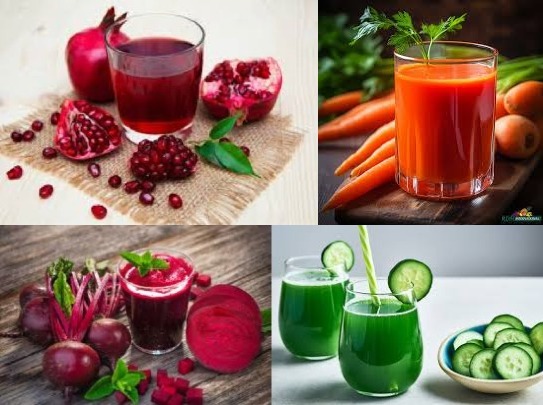There are home-made juices that help to lower high blood pressure naturally. Packed with nutrients, these refreshing drinks combine ingredients known for their heart-friendly benefits, helping to relax blood vessels, improve circulation, and reduce hypertension.
According to scientific studies, several juices that you can make at home may help lower high blood pressure due to their high content of nutrients like potassium, antioxidants, and nitrates. Here are a few:
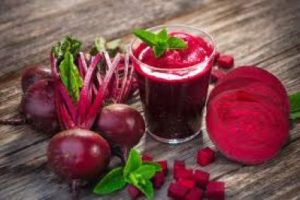
Beetroot juice
Multiple studies have shown that beetroot juice can lower blood pressure. For instance, the
American Heart Association says a study found that people with high blood pressure who drank one cup of red beet juice daily for four weeks saw an average drop in blood pressure of 7.7/5.2 mm Hg over a 24-hour period.
Also, experts at Queen Mary University of London note that a study found that drinking one cup of beetroot juice daily could significantly lower blood pressure for people with high blood pressure.
How it helps: Beetroot contains nitrates, which help relax blood vessels and improve blood flow, lowering blood pressure.
How to make it: Blend raw beetroot with a bit of water. You can add some apple or ginger for flavour.
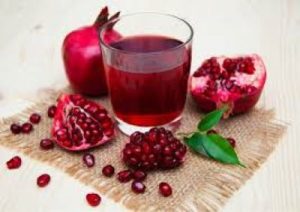
Pomegranate juice
Some research shows that drinking pomegranate juice daily can lower systolic blood pressure by about 5 mmHg. A meta-analysis of eight randomized controlled trials (RCTs) found that pomegranate juice significantly decreased both systolic and diastolic blood pressure levels.
How it works: Pomegranates are believed to reduce blood pressure by reducing levels of Angiotensin converting enzyme (ACE), a protein that controls blood pressure by controlling the size of blood vessels.
Rich in antioxidants, particularly polyphenols, pomegranate juice may help lower blood pressure by improving heart health and reducing inflammation.
How to make: Blend pomegranate seeds and strain them to get fresh juice.
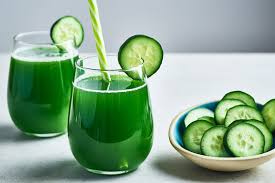
Cucumber juice
Cucumbers are low in carbohydrates, which can be beneficial for people with high blood sugar.
High in fiber
Cucumbers are high in fiber, which can help lower blood sugar levels by slowing down the digestion of carbohydrates and sugar.
Hydrating
Cucumbers are a good source of hydration, which is important for people with diabetes.
Other health benefits
Cucumbers are also rich in antioxidants, vitamins, and minerals. They can help maintain blood pressure and promote healthy cholesterol levels.
How it helps: Cucumber is high in potassium, which helps balance sodium levels in the body, lowering blood pressure.
How to make: Blend cucumbers with some water. Adding lemon and mint can enhance flavor.
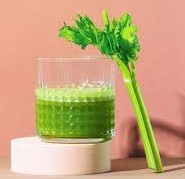
Celery juice
Chemical components: Celery contains chemicals like 3-n-butylphthalide (NBP) and apigenin that can help lower blood pressure:
NBP: Reduces fat accumulation in arteries and increases artery wall elasticity
Apigenin: Helps prevent high blood pressure and dilates blood vessels
Natural nitrate: The natural nitrate in celery can help reduce blood pressure
Phthalides: A phytochemical in celery that may help relax blood vessel muscles
Some studies have shown that celery juice can help lower blood pressure. For instance, a 2013 study found that participants who took celery seed extract capsules for six weeks reported a significant drop in blood pressure
Also, a 2019 study in Java found that celery juice reduced systolic and diastolic blood pressure in people with hypertension
One study also found that an elderly patient responded positively to celery juice and chiropractic care after six months
However, no large-scale controlled trials have assessed the efficacy of celery juice in lowering blood pressure. For optimal heart health, you should also include other fruits, vegetables, and protein in your diet.
How it helps: Celery contains phytochemicals called phthalides, which may help relax the tissues of artery walls, increasing blood flow and reducing blood pressure.
How to make: Blend celery stalks with water and strain the juice.
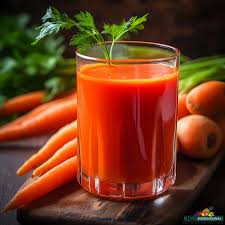
Carrot juice
Potassium: Carrot juice is high in potassium, which may help lower systolic blood pressure.
Antioxidants: Carrot juice contains vitamin E and other antioxidants, which can help regulate blood pressure and lower cholesterol levels.
Phenolic compounds: Carrots contain phenolic compounds, which can relax blood vessels and reduce inflammation.
How it helps: Carrots are rich in potassium and beta-carotene, both of which are beneficial for heart health and can help regulate blood pressure.
How to make: Blend raw carrots with some water, and optionally, add apple for sweetness.
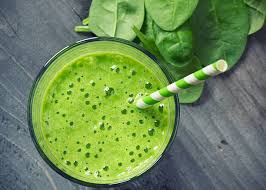
Spinach juice
Potassium: Spinach is high in potassium, which helps relax blood vessels and lower blood pressure. Potassium also helps your kidneys get rid of extra sodium.
Nitrates: Spinach contains nitrates, which can help moderate blood pressure levels and decrease your risk of heart disease.
Other nutrients: Spinach also contains magnesium and folate, which help you make nitric oxide, a molecule that lowers blood pressure.
Spinach juice is also rich in antioxidants and other beneficial substances that can: protect eyesight and improve hair and skin condition.
However, spinach juice is low in fiber and lacks essential nutrients such as protein and healthy fats. You should drink it as part of a balanced diet, alongside other nutrient-rich foods.
How it helps: Spinach is rich in nitrates, which can lower blood pressure by improving blood flow.
How to make: Blend spinach with a little water or mix it with apple or cucumber for better taste.
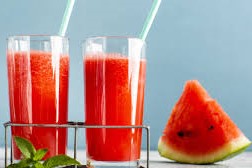
Watermelon juice
Watermelon contains nutrients that support healthy blood pressure, including:
Citrulline: An amino acid that the body converts to arginine, which helps produce nitric oxide.
Nitric oxide relaxes blood vessels and improves artery flexibility, which can help with blood flow and lower blood pressure.
Lycopene: A nutrient that supports healthy blood pressure.
Potassium: A nutrient that supports healthy blood pressure.
Other health benefits of watermelon include:
- Boosting heart health
- Lowering the risk of heart disease and stroke
- Anti-inflammatory properties
- Benefits for eyes and joints
- Easy to digest
- Helps maintain a healthy weight
However, people with diabetes should consider the natural sugar content of watermelon and account for it in their meal plan. Juicing removes fiber, making the sugar easier for the body to absorb.
How it helps: Watermelon contains an amino acid called citrulline, which helps in dilating blood vessels, potentially reducing blood pressure.
How to make: Blend fresh watermelon and strain if needed.
- EDITOR’S NOTE: Before you start any new diet, or if you’re on special medication for an ailment, speak with your doctor

